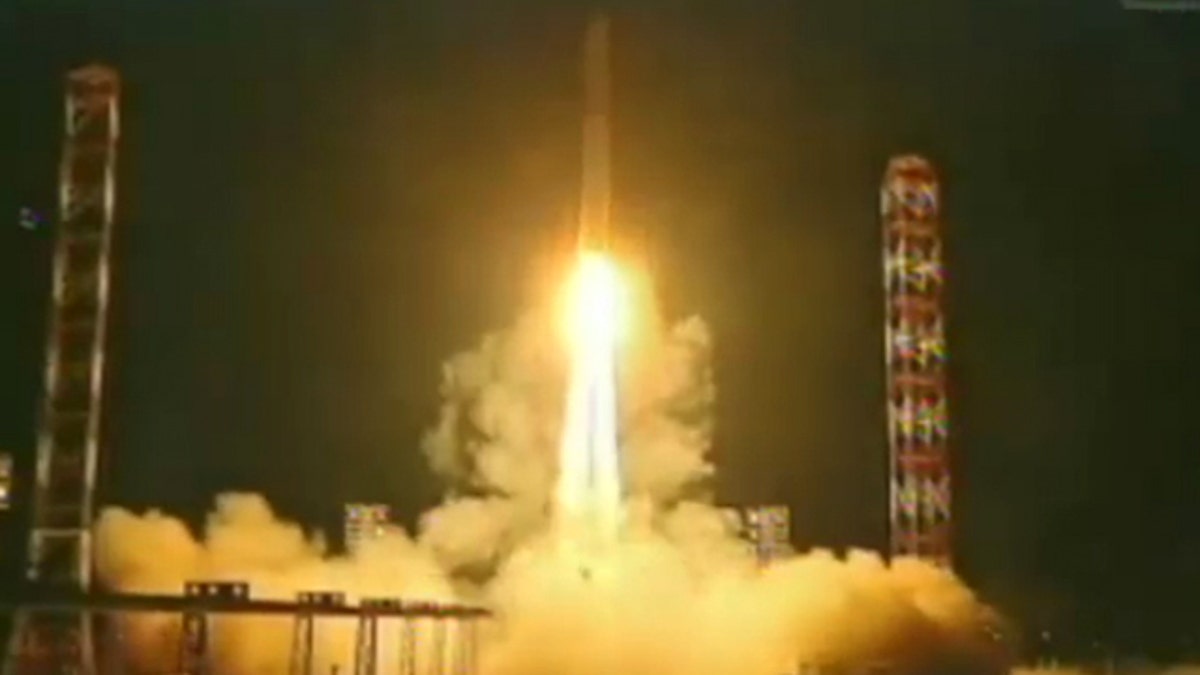
A Zenit rocket launches into space carrying Russia's Phobos-Grunt spacecraft oward Mars on a mission to collect samples of the Martian moon Phobos. Liftoff occured on Nov. 9, 2011 Local Time from Baikonur Cosmodrome in Kazakhstan (Nov. 8 EST). (Spaceflight Now)
Moscow, we have a problem -- again.
The Russian space program, already embarrassed by failed rocket tests that have delayed trips to the International Space Station, was dealt another blow Wednesday when its much heralded mission to Mars was revealed to be a dud.
The launch went off as planned, but the unmanned probe failed to follow the intended course, Interfax reported, citing the head of Russia's space agency. An engine failure reportedly was to blame.
The probe had been sent on a daring mission to reach Phobos, a moon of Mars, and to fly samples of its soil back to Earth.
The Phobos-Grunt (Phobos-Soil) craft was successfully launched by a Zenit-2 booster rocket at 12:16 a.m. Moscow time Wednesday from the Russian-leased Baikonur cosmodrome in Kazakhstan.
The $170 million endeavor was to be Russia's first interplanetary mission since Soviet times. A previous 1996 robotic mission to Mars ended in failure when the probe crashed in the Pacific following an engine failure.
Russia has faced a string of spectacular failures in the past year. In December, a rocket and its payload of three communications satellites fell into the Pacific Ocean after failing to reach orbit. A military satellite was lost in February, and in mid-August the Express-AM4, described by officials as Russia's most powerful telecommunications satellite, was lost.
The Phobos-Grunt originally was set to blast off in October 2009, but its launch was postponed because the craft wasn't ready.
The 29,040-pound craft was the heaviest interplanetary probe ever, with fuel accounting for most of its weight. It was manufactured by the Moscow-based NPO Lavochkin that has specialized in interplanetary vehicles since the dawn of the space era.
The company designed the craft for the failed 1996 launch, and two of its probes sent to Phobos in 1988 also failed. One was lost a few months after the launch due to an operator's mistake, and contact was lost with its twin when it was orbiting Mars.
Scientists had hope that studies of the Phobos soil would help solve the mystery of its origin and shed more light on the genesis of the solar system. Some believe that the crater-dented moon is an asteroid captured by Mars' gravity, while others think it's a piece of debris resulting from Mars' collision with another celestial object.
The Associated Press contributed to this report.
